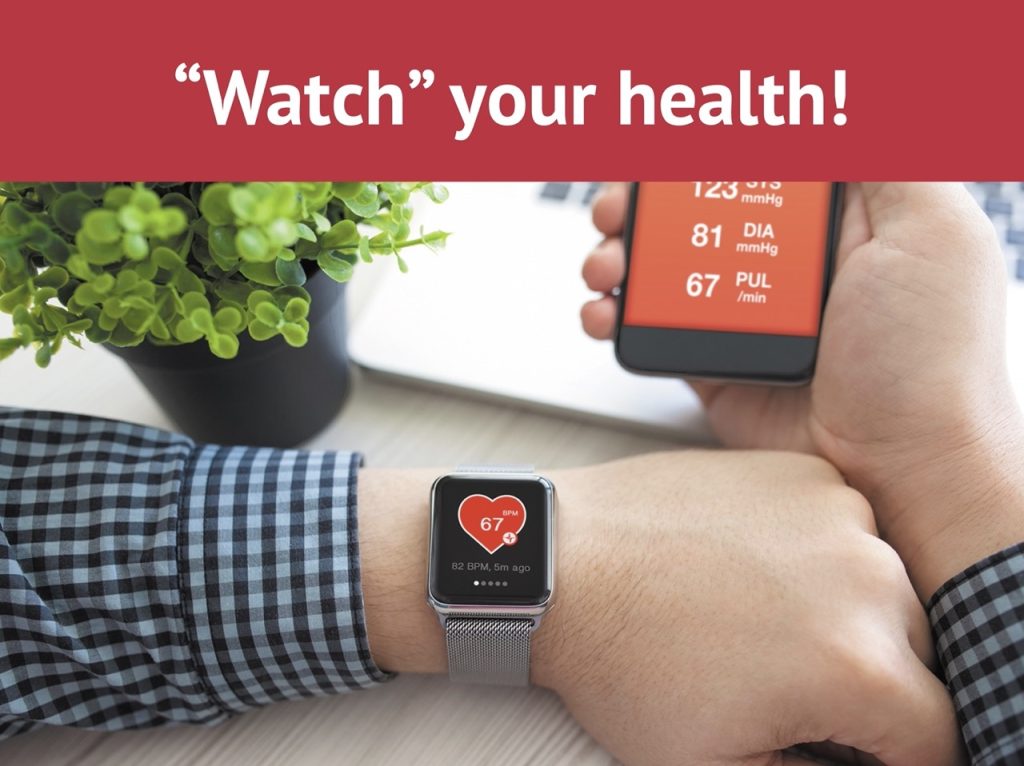Since the 1980’s when the first wearable heart rate monitors for athletes hit the scene, the technology behind fitness tracking devices have improved in leaps and bounds to the Smart Watches we find in the market today. Some merely count steps, while others monitor heart rates, blood oxygen levels, daily activities, levels and duration of sleep, track calorie burn, and offer health tips through an app.
WHAT ARE THE BENEFITS OF FITNESS TRACKERS?
The best fitness tracker depends on a person’s health goals and budget and the specific fitness activities or health metrics they wish to track. By keeping a close eye on these categories, it may help some individuals identify previously unnoticed symptoms or understand how their lifestyle affects their health. These trackers monitor a range of activities, deliver instant metrics and offer several benefits, including:
- tracking activity, including calories burned
- monitoring sleep patterns
- monitoring heart rate and general health
- free workout trainer and tips
- helping to set achievable and realistic exercise goals
- and helps you to stay motivated in maintaining health goals
HEALTH CONDITIONS THAT FITNESS TRACKERS MAY HELP MANAGE
A word of caution though – people who use fitness trackers should note that the Food and Drug Administration (FDA) does not regulate these devices. Their readings are not always reliable, while the metrics they track are not necessarily the most significant measures of fitness or health.
Before relying purely on a fitness tracker to monitor health, our experts recommend that you consult with a doctor to discuss specific metrics and the best options for tracking them.
In some cases, fitness trackers may help individuals manage certain health conditions, such as cardiovascular health, diabetes, obesity, asthma, and sleep disorders. Let’s have a more in-depth view.
- Diabetes
A fitness tracker cannot detect diabetes, but it may help those with a confirmed diagnosis manage their symptoms, follow an appropriate diet, and maintain physical activity levels. People with diabetes who lose weight may experience fewer symptoms, so these trackers could be beneficial and motivating.
- Cardiovascular health
A fitness tracker that monitors heart rate may detect heart arrhythmia. Some fitness trackers can also monitor blood pressure, and even blood oxygen levels. This feature could be particularly helpful for pregnant people and those with high blood pressure.
- Breathing disorders
The fitness trackers that record sleep behavior may help monitor certain conditions, such as sleep apnea or asthma. In a 2020 study, females with this condition, nighttime awakening predicted changes in lung function. The sleep tracker was able to monitor these breathing changes, making it a useful tool for daily asthma self-management.
- Sleep disorders
To keep track of nighttime waking, a person detects sleep disorders and understand their energy levels better if they utilize a fitness tracker. In some individuals, frequent night waking may be a sign of sleep apnea or, in other cases, gastroesophageal reflux disease (GERD).
- Weight management
People hoping to achieve a moderate body weight, whether through weight loss or gain, may find fitness trackers helpful. Long term weight management also benefits from these monitoring devices. Functions often include the monitoring of the number of calories burnt through exercise and other factors such as number of steps etc. which are important for weight management.
People who are not trying to gain or lose weight may not usually monitor their weight. However, a fitness tracker that measures activity levels may support a diagnosis of some conditions, such as cancer or type 1 diabetes, which can both cause unexplained weight loss.
FINALLY, THE RISKS
Digital health technology has the potential to separate patients from doctors as patients become reliant on self-diagnosis. However, it might improve the frequency and content of communications but the trade off is less human contact.
Interactions may become standardised, even when that is not the explicit intention. This creates the possibility that diagnosing and managing illnesses could become robotised, leading to a situation where doctors stop listening and using their intuition and patients stop communicating how they really feel.
Our relationships with healthcare professionals could also be damaged if we feel they are effectively spying on us, or that the data being collected could be shared more widely.
THE GERMAN HEART WAY
Our cardiologists may use the information and data from a patient’s fitness tracker to support their diagnosis and proposed health plans. Our approach is always one of working together, protecting our patient’s data, and offering the best possible prognosis. Contact German Heart Centre to set up your consultation and discuss the most efficient use of your fitness tracker.

